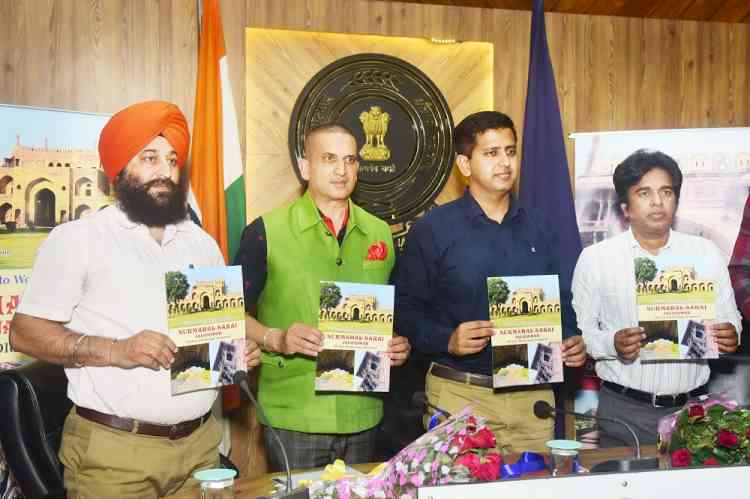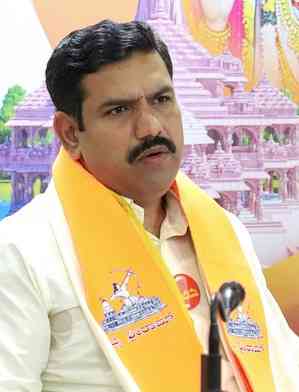Literary Tweets? Anecdotes as micro-biographies (Column: Bookends)
The pre-occupations of modern life - both personal and professional - and technological advancements have various effects, mainly positive but some not very so. Lack of leisure time or at least time away from electronic devices is one, the...

The pre-occupations of modern life - both personal and professional - and technological advancements have various effects, mainly positive but some not very so. Lack of leisure time or at least time away from electronic devices is one, the shrinking span of attention is another. Thus reading becomes a casualty, barring for a devoted few.
But literature can be extraordinarily elastic, capable of expanding or shrinking to fill the time as you want to give it. Don't have time for novels? Turn to short stories. Don't prefer longish poetry? The three-line, 14-syllable haikus can be an option. Want to get uplifted by reading an inspiring autobiography or biography but time is not your ally - well, you can always pick your choice from a lavish buffet of anecdotes.
But there is the question about the literary value that anecdotes should be assigned. Are they just a higher form of jokes - being a witty quote in a setting - or even gossip?
To some extent, they can be both, but also are beyond them. Anecdotes can be humorous like jokes but differ in their purpose - in not just being able to evoke laughter, but also, in a few but attention-grabbing words, giving a revealing and unforgettable portrayal of a personality.
Let's take some examples about literary personalities.
Welsh poet Dylan Thomas was capable of some memorable reactions, as a friend recalled from some holidays in Wales. There was this sunny morning when Dylan, "carrying around with him and intermittently sipping from a flagon of 'champagne wine tonic', a Penzance herbalist's highly intoxicating brew sold very cheaply and without licence", talked copiously and then stopped. "Somebody's boring me," he said. 'I think it's me.'"
In older times, it was difficult to be a literary celebrity - in some people's eyes at least.
D.H. Lawrence gave a copy of a published work to his father. "My father struggled through half a page, and it might as well have been Hottentot. 'And what dun they give thee for that, lad?' 'Fifty pounds, father.' 'Fifty pounds!' He was dumbfounded, and looked at me with shrewd eyes, as if I were a swindler. 'Fifty pounds! An' tha's niver done a day's hard work in thy life.'"
But it is not only the cultural icons of the Western world that have been subject of witty anecdotes. Closer to home, instances of Urdu poets have also enriched the genre but remain not as well-known since they mostly remain untranslated.
Shabbir Hassan Khan 'Josh Malihabadi' was known for his impatience and being quick to anger - not to mention a literary way of expressing it. Arriving at Maulana Azad's house, he had to wait some time as there was a crowd of petitioners for the minister.
As time passed and his turn failed to come, Josh sent in a chit with a short couplet: "Na munasib hai khoon khaulana/Phir kisi waqt, Maulana."
As the story goes, Azad read the chit, smiled and came out himself to call in the poet inside.
Or of the equally ready wit of Raghupati Sahay 'Firaq Gorkhapuri'. Returning home to Allahabad on a train, the poet struck up an acquaintance with a co-passenger, a Parsi gentleman called Daruwalla, and had a most lively conversation. As Firaq reached his destination, his new friend asked him for his address so that he could call on him.
Firaq said: "I live on Bank Street. You come there and instead of looking for my house, tell any bystander your name. They will themselves bring you to my house."
Asrar-ul-Haq 'Majaz Lakhnavi', who died tragically young, was another master of wit and repartee and his anecdotes are legendary. So much so that they were collected and published both separately and along with his poetry.
Fond of his drink, he once got embroiled in an argument with a woman scholar, whom he felt compelled to admonish once the discussion reached his art, telling her that he was a "master of diction".
Needling him, the scholar wanted to know what, in that case, mastery Josh Malihabadi displayed? Majaz knit his brows and then replied: "He is a master of the dictionary," referring to the high, polished language Josh used in his poetry and prose.
Maulana Hasrat Mohani, known for his immortal ghazals of unforgettable but lost love "Chupke chupke raat din aansu bahana yaad hai", was a most principled and uncompromising freedom fighter. As police came to cart him off to prison during the Swadeshi agitation, he came to the conclusion that he was not bound to help them - resulting in him being bodily carried out of his house by four burly constables. The next day, nationalist newspaper 'Zamindar' observed that Jesus Christ entered Jerusalem riding on a donkey but Hasrat Mohani went to jail, riding on four donkeys!
There are countless others that need to be disseminated to a wider audience so that we can relish the wit of our own literary figures. Any volunteers?
(27.04.2017 - Vikas Datta is a Senior Assistant Editor at IANS. The views expressed are personal. He can be contacted at [email protected])

 cityairnews
cityairnews 
















